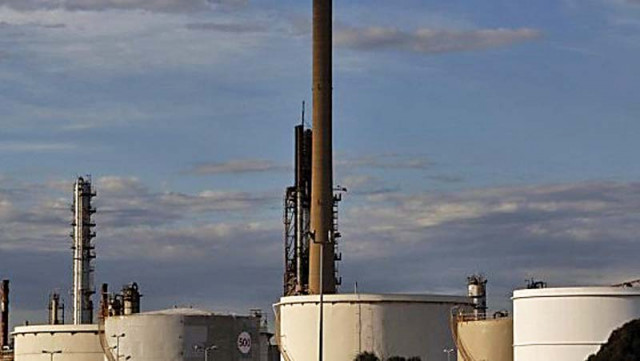Crude oil production reaches record high of 100,000 bpd
Local production is helping meet 20% of country’s demand, says minister

Crude oil output was reportedly hovering below 90,000 barrels per day in the previous month. PHOTO: FILE
“Oil production is meeting 20% of local demand,” said Shahid Khaqan Abbasi, Federal Minister for Petroleum and Natural Resources.
OGDC's crude oil production reaches new height
The remainder 80% demand is met through imported crude oil and finished petroleum products.
Local production was reportedly hovering below 90,000 bpd in November. This was standing at 87,000 bpd in the previous fiscal year ended June 30, 2016 and 95,000 bpd in the year before. The decline in production in fiscal year 2015-16 (FY16) was seen after oil producing firms put on hold their projects under the then prevailing steep low oil prices in the world market.
State-owned Oil and Gas Development Company (OGDC) was maintaining the highest reserves of oil and gas in the country, as its share in local crude oil production stands above 50%. “OGDC has surpassed 50,000 bpd production last month [November],” Abbasi added.
Most of the new discoveries of oil and gas deposits were made in the provinces of Sindh and Khyber-Pakhtunkhwa in recent months.
The minister said some of the local refineries have also upgraded quality of their products in line with international standards. “[Local] refineries are now producing RON90, which is three grades higher than RON87 that they were producing until recently,” he said.
Deregulating prices
He was speaking at the launch of improved-quality petroleum product, V-Power (RON95), at Shell Pakistan. This is a deregulated product, which is better known as HOBC in the country.
Pakistan increasing storage capacity to more than 20 days
HOBC is used in high-powered engines like 4x4 and jeeps.
Last month, Pakistan State Oil launched similar products. Prices of the products are set by companies themselves under the deregulated pricing regime in place.
“The improved-quality products, which are deregulated, would provide avenues for end-consumers to choose between prices and qualities from different companies’ fuelling stations. The deregulation policy would create an environment of competition in the country and would ultimately benefit the consumers,” Abbasi said.
He said the government had deregulated high-end fuels like HOBC. It has also initiated debate at the Economic Coordination Committee (ECC) of the cabinet to deregulate standard fuels like petrol, which is mostly used by motorcyclists and small-engine cars.
“We are making efforts to deregulate standard fuels during the present government’s tenure as well. The ECC is deliberating upon this at present,” he said.
The deregulation would also provide opportunities to earn higher profit for those companies which would provide the best fuels. “If companies would earn they would spend on consumers,” he added.
Besides, all oil marketing companies have been importing improved-quality petrol RON92 in place of RON87 since November 1. “High-quality products have been in demand since car manufacturers started rolling out Euro-II engines,” he said.
Published in The Express Tribune, December 2nd, 2016.
Like Business on Facebook, follow @TribuneBiz on Twitter to stay informed and join in the conversation.



















COMMENTS
Comments are moderated and generally will be posted if they are on-topic and not abusive.
For more information, please see our Comments FAQ